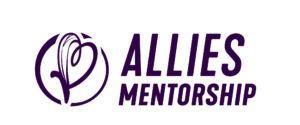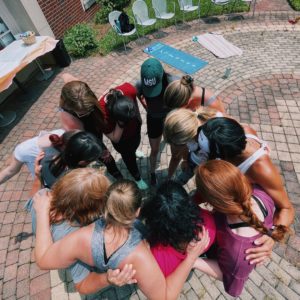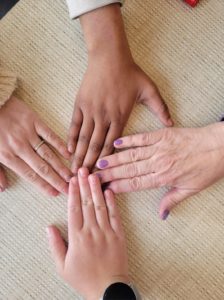Allies Mentorship Program Helps Survivors of Trafficking and Sexual Exploitation
Writer / Julie Yates
Photography Provided
The Allies Mentorship Program is the largest program of Allies, Inc, a nonprofit organization dedicated to supporting survivors of sexual trafficking through awareness, prevention education, and connection. Since 2016, young women aged 12 through 24 referred by the Department of Child Services have been matched up with highly trained mentors. The initiative grew out of a desire not just to raise awareness of human trafficking, but also to empower those who have experienced it.
referred by the Department of Child Services have been matched up with highly trained mentors. The initiative grew out of a desire not just to raise awareness of human trafficking, but also to empower those who have experienced it.
“The organization became a 501(c)(3) corporation in 2011, but it has existed since 2008 when Founder Jessica Evans learned about sexual trafficking through her church and overseas mission work,” says Audrey Hood, Allies mentorship director. “At the time she was a teacher and saw the brokenness that can occur in families. She began to raise awareness by organizing a car wash and concert, with money going to a national organization. By 2010 she felt a need to help survivors living in Indianapolis and applied for nonprofit status.”
“By 2014 staff was going into facilities with high-risk youth and teaching a 10-week program called ‘My Life My Choice,’” Hood continues. “During the course, relationships were built, but there was no way to continue to connect after the period ended. The idea of a mentorship program began, and by 2016 mentee and mentor matches were made.”
According to Hood, the number of matches has reached 70. Mentors go through a 12-week training program that consists of both on-site and online modules. All mentors are volunteers and they receive education on aspects that, for most, are foreign to the world they are used to. Topics covered include human trafficking, how trauma affects the brain, understanding other views of the world, recognizing that people hold different values, relationship building, and the Allies Mentorship Program in general.
“We ask our mentors to commit to one year,” Hood says. “These girls might change living situations five or six times in a year by changing facilities, foster-care locations, or returning to their family. Each time they move, their team changes. They get different counselors and therapists. But the one thing that stays the same in a year is their mentor. We hope the relationship continues beyond a year, and we encourage the mentor and mentee to become friends or like family.”

It is suggested that mentors and mentees meet in person at least two times per month. On off-weeks, contact can be made through texting, letters and phone calls. Pairs do a bit of everything from swinging in a park and having milkshakes to attending a farmers market. Some spend time doing volunteer activities, or filling out job or apartment applications together. Hood cautions that youths are harmed when commitments fail. Mentors are encouraged not to give up, even if a mentee does not return calls or texts. People who are flexible and coachable, like to have a good time, and don’t take things personally are optimal for the job.
“We encourage them to do things that are free, and for the mentor not to spend money,” Hood says. “The focus should be on developing a relationship, not providing. One pair needed something to do on a rainy day and ended up walking around a home-building store. They picked out things for a dream home such as the front door. Quarterly, every season, all the mentors and mentees come together for an activity. We have done yoga with ice cream floats, Cookies and Canvas, Indianapolis Indians baseball, and Christmas at the Zoo. It adds another element to create different opportunities, and mentors can bounce ideas off each other.”
The program includes a team of five full-time employees with some contract staff. The rest are all volunteers. Although a small portion of money comes from some grants and foundations, most funding comes from private donors.
“These girls don’t look how you would expect them to,” Hood says. “They are just kids. We are introducing them to a different world of opportunity. Trauma that happens in a relationship has to be healed within a relationship, and over a lifetime of interactions. Be that one person for someone.”
Email Hood with questions about becoming an Allies mentor at audrey@allies-inc.org. Contact Allies, Inc at P.O. Box 531965, Indianapolis, IN 46253.
Indianapolis, IN 46253.
Visit allies-inc.org, email info@allies-inc.org, or call 317-782-5535 for more info.
If you know of or suspect someone who is involved in human trafficking, you can call the national hotline for confidential help and info at 1-888-373-7888.





